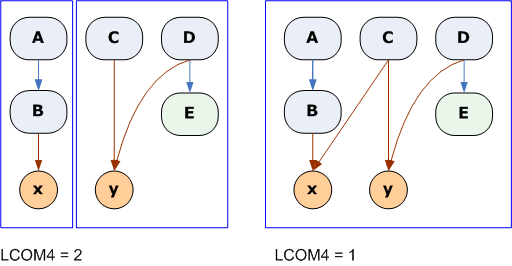The default Java code coverage engine for unit tests to be used must
be defined in
Settings > Configuration > General Settings > Java > Code coverage plugin property.
By default the Java code coverage engine with come up with sonar is JaCoCo but Cobertura, Emma or Clover can also be used.
For more information, see: Comparison of Emma, Clover, Cobertura and JaCoCo.
Known limitations:
This plugin has only one parameter to define the maximum amount of memory used by the java process in charge to extract all code coverage information from the Cobertura report:
Settings > Configuration > General Settings > Java > Code coverage plugin property.
By default the Java code coverage engine with come up with sonar is JaCoCo but Cobertura, Emma or Clover can also be used.
JaCoCo
JaCoCo is an open source and robust Java code coverage tool.For more information, see: Comparison of Emma, Clover, Cobertura and JaCoCo.
Known limitations:
- Some libraries complain on classes, which were instrumented by JaCoCo, so exclusions must be set:
- Javassist (e.g. when Hibernate used) - "*_javassist_*"
- Drools - "org.drools.*"
- Exact number of line hits not available, because JaCoCo reports only status of line (no code, not covered, partly covered, fully covered) - see JaCoCo Coverage Counters.
Cobertura
The Sonar Cobertura plugin is based on the cobertura-maven-plugin and so can only be used to compute code coverage information on Maven projects.This plugin has only one parameter to define the maximum amount of memory used by the java process in charge to extract all code coverage information from the Cobertura report:



